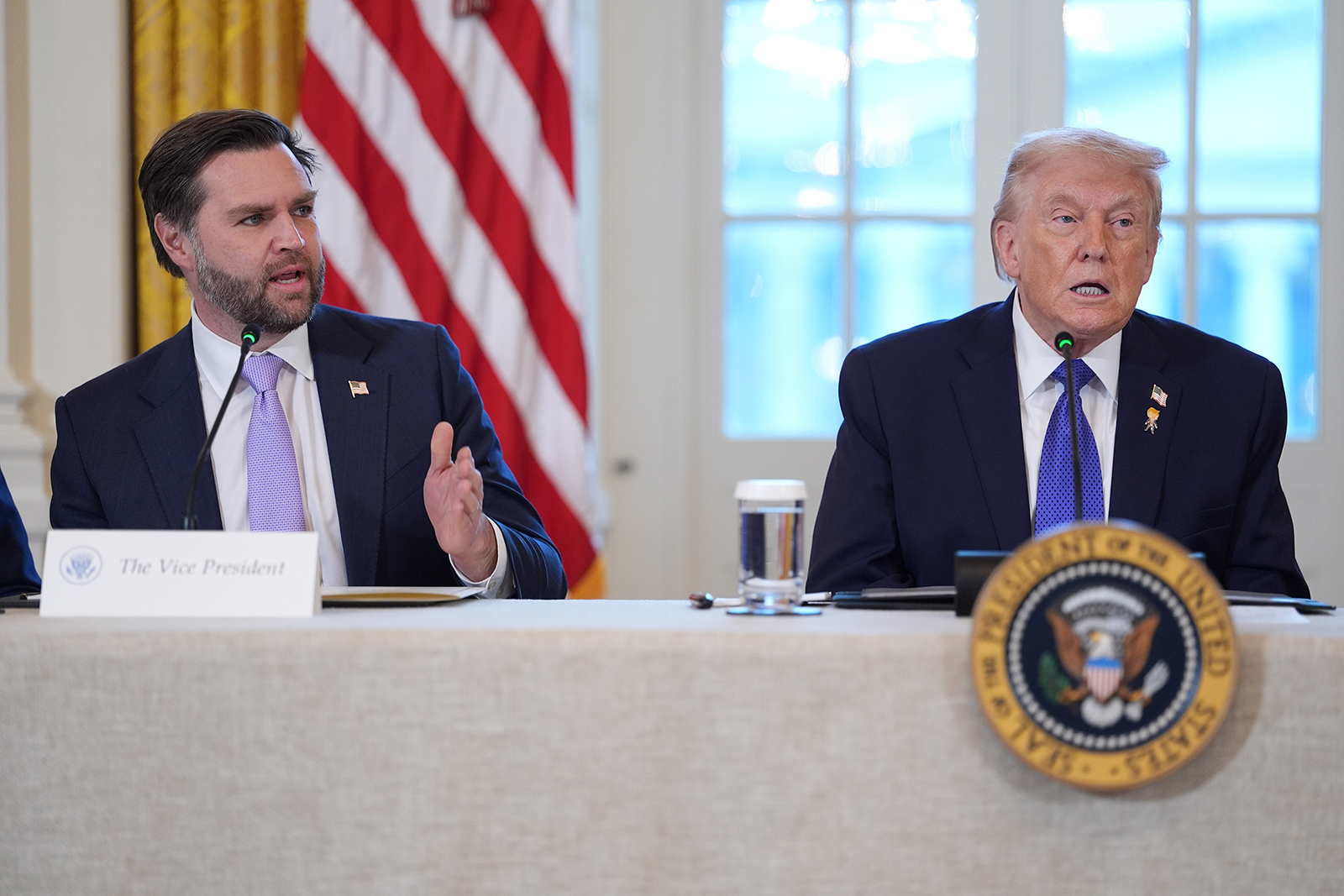
A Christian chruch service on July 8, 2024 (Paul Shuang/Shutterstock.com)
January 12, 2026
Christian Reconstructionism is a theological and political movement within conservative Protestantism that argues society should be governed by biblical principles, including the application of biblical law to both personal and public life.
Taking shape in the late 1950s, Christian Reconstructionism developed into a more organized movement during the 1960s and 1970s.
It was born from the ideas of theologian R. J. Rushdoony, an influential Armenian-American Calvinist philosopher, theologian and author. In his 1973 book, “The Institutes of Biblical Law,” Rushdoony argued that Old Testament laws should still apply to modern society. He supported the death penalty not only for murder but also for offenses listed in the text such as adultery, blasphemy, homosexuality, witchcraft and idolatry.
As a scholar of political and religious extremism, I am familiar with this movement. Its following has been typically very small – never more than a few thousand committed adherents at its peak. But since the 1980s, its ideas have spread far beyond its limited numbers through books, churches and broader conservative Christian networks.
The movement helped knit together a network of theologians, activists and political thinkers who shared a belief that Christians are called to “take dominion” over society and exercise authority over civil society, law and culture.
These ideas continue to resonate across many areas of American religious and political life.
Origins of Christian Reconstructionism
Rushdoony’s ideas were born from a radical interpretation of Reformed Christianity – a branch of Protestant Christianity that follows the teachings of John Calvin and other reformers. It emphasizes God’s authority, the Bible as the ultimate guide and salvation through God’s grace rather than human effort.
Rushdoony’s ideas led him to found The Chalcedon Foundation in 1965, a think tank and publishing house promoting Christian Reconstructionism. It served as the movement’s main hub, producing books, position papers, articles and educational materials on applying biblical law to modern society.
It helped train Greg Bahnsen, an Orthodox Presbyterian theologian, and Gary North, a Christian reconstructionist writer and historian, both of whom went on to take key leadership roles in the movement.
At the heart of reconstructionism lies the conviction that politics, economics, education and culture are all arenas where divine authority should reign. Secular democracy, they argued, was inherently unstable, a system built on human opinion rather than divine truth.
These ideas were, and remain, deeply controversial. Many theologians, including conservatives within the Reformed tradition, rejected Rushdoony’s argument that ancient Israel’s civil laws should apply in modern states.
Christian dominionism and different networks
Nonetheless, reconstructionist ideas grew as people who more broadly believed in dominionism began to align with it. Dominionism is a broader ideology advocating Christian influence over culture and politics without requiring literal enforcement of biblical law.
Dominionism did not begin as a single, unified movement. Rather, it emerged in overlapping strands during the same period that Christian Reconstructionism was developing.
Between the 1960s and 1980s, Christian Reconstructionism helped turn dominionist beliefs into an explicit political project by grounding them in theology and outlining how biblical law should govern society. Religion historian Michael J. McVicar explains that Rushdoony’s work advocated applied biblical law as both a theological and political alternative to secular governance. This helped in influencing the trajectory of the Christian right.
At the same time, parallel streams – especially within charismatic and Pentecostal circles – advanced similar claims about Christian authority over society using different theological language.
The broad network of those who believe in Christian dominionism includes several approaches: Rushdoony’s reconstructionism, which provides the theological foundation, and charismatic kingdom theology.
Charismatic kingdom theology, which emerged in Pentecostal and charismatic circles, teaches that believers – empowered by the Holy Spirit – should shape politics, culture and society before Christ’s return.
Unlike reconstructionism, it emphasizes prophecy and spiritual authority rather than formal biblical law; it seeks influence over institutions such as government, education and culture.
What unites them is the idea that Christian faith should be the basis of the nation’s moral and political order.
Taken together, I argue that these strands have reinforced one another, creating a larger movement of thinkers and activists than any single approach could achieve alone.
From reconstructionism to the New Apostolic Reformation
Christian reconstructionist and dominionist ideas gained wider popularity through C. Peter Wagner, a leading charismatic theologian who helped shape the New Apostolic Reformation, or NAR, by adapting elements of Christian Reconstructionism. NAR is a charismatic movement that builds on dominionist ideas by emphasizing the use of spiritual gifts and apostolic leadership to shape society.
Wagner emphasized spiritual warfare, prophecy and modern apostles taking control of seven key areas – family, church, government, education, media, business and the arts – to reshape society under biblical authority. This is known as the “Seven Mountains Mandate.”
Both revisionist and dominionist movements share the belief that Christians should lead cultural institutions.
Wagner’s dominion theology, however, adapts Christian Reconstructionism to a charismatic context, transforming the goal of a Christian society into a spiritually driven movement aimed at influencing culture and governments worldwide.
Doug Wilson and homeschooling
Another key bridge between reconstructionism and contemporary dominionist thought is Doug Wilson, a pastor and author in Moscow, Idaho.
Though Wilson distances himself from some of reconstructionism’s harsher edges, he draws heavily from Rushdoony’s intellectual framework. Wilson’s influence can be seen in publications such as “Reforming Marriage,” where he argues for applying biblical principles to law, education and family life.
He has promoted Christian schools, traditional family roles and living out a “Christian worldview” in everyday life, bringing reconstructionist ideas into new areas of society.
Through his writings, teaching and leadership within the Communion of Reformed Evangelical Churches – the CREC – network, Wilson encourages a vision of society shaped by Christian values, connecting reconstructionist thought to contemporary cultural engagement.
Wilson’s publishing house, Canon Press, and his classical school movement have brought these ideas into thousands of Christian homes and classrooms across the U.S. His local congregation – the Christ Church in Moscow, Idaho – numbers around 1,300.
The Christian homeschooling movement offers parents a curriculum steeped in reformed theology and resistance to secular education.
Enduring influence
Some critics warn that the fusion of dominionist and reconstructionist theology with political action can weaken pluralism and democratic norms by pressuring laws and policies to reflect a single religious worldview. They argue that even moderated forms of these visions challenge the separation of church and state. They risk undermining the rights of religious minorities, nonreligious citizens and others who do not share the movement’s beliefs.
Supporters frame their mission as the renewal of a moral society, one in which divine authority provides the foundation for human flourishing.
Today, Christian Reconstructionism operates through small but influential networks of churches, Christian homeschool associations and media outlets. Its reach extends far beyond its original movement.
Even among those unfamiliar with Rushdoony, the political and theological patterns he helped shape remain visible in modern evangelical activism and the ongoing debates over religion’s place in American public life.
Art Jipson, Associate Professor of Sociology, University of Dayton
This article is republished from The Conversation under a Creative Commons license. Read the original article.
Christian Reconstructionism is a theological and political movement within conservative Protestantism that argues society should be governed by biblical principles, including the application of biblical law to both personal and public life.
Taking shape in the late 1950s, Christian Reconstructionism developed into a more organized movement during the 1960s and 1970s.
It was born from the ideas of theologian R. J. Rushdoony, an influential Armenian-American Calvinist philosopher, theologian and author. In his 1973 book, “The Institutes of Biblical Law,” Rushdoony argued that Old Testament laws should still apply to modern society. He supported the death penalty not only for murder but also for offenses listed in the text such as adultery, blasphemy, homosexuality, witchcraft and idolatry.
As a scholar of political and religious extremism, I am familiar with this movement. Its following has been typically very small – never more than a few thousand committed adherents at its peak. But since the 1980s, its ideas have spread far beyond its limited numbers through books, churches and broader conservative Christian networks.
The movement helped knit together a network of theologians, activists and political thinkers who shared a belief that Christians are called to “take dominion” over society and exercise authority over civil society, law and culture.
These ideas continue to resonate across many areas of American religious and political life.
Origins of Christian Reconstructionism
Rushdoony’s ideas were born from a radical interpretation of Reformed Christianity – a branch of Protestant Christianity that follows the teachings of John Calvin and other reformers. It emphasizes God’s authority, the Bible as the ultimate guide and salvation through God’s grace rather than human effort.
Rushdoony’s ideas led him to found The Chalcedon Foundation in 1965, a think tank and publishing house promoting Christian Reconstructionism. It served as the movement’s main hub, producing books, position papers, articles and educational materials on applying biblical law to modern society.
It helped train Greg Bahnsen, an Orthodox Presbyterian theologian, and Gary North, a Christian reconstructionist writer and historian, both of whom went on to take key leadership roles in the movement.
At the heart of reconstructionism lies the conviction that politics, economics, education and culture are all arenas where divine authority should reign. Secular democracy, they argued, was inherently unstable, a system built on human opinion rather than divine truth.
These ideas were, and remain, deeply controversial. Many theologians, including conservatives within the Reformed tradition, rejected Rushdoony’s argument that ancient Israel’s civil laws should apply in modern states.
Christian dominionism and different networks
Nonetheless, reconstructionist ideas grew as people who more broadly believed in dominionism began to align with it. Dominionism is a broader ideology advocating Christian influence over culture and politics without requiring literal enforcement of biblical law.
Dominionism did not begin as a single, unified movement. Rather, it emerged in overlapping strands during the same period that Christian Reconstructionism was developing.
Between the 1960s and 1980s, Christian Reconstructionism helped turn dominionist beliefs into an explicit political project by grounding them in theology and outlining how biblical law should govern society. Religion historian Michael J. McVicar explains that Rushdoony’s work advocated applied biblical law as both a theological and political alternative to secular governance. This helped in influencing the trajectory of the Christian right.
At the same time, parallel streams – especially within charismatic and Pentecostal circles – advanced similar claims about Christian authority over society using different theological language.
The broad network of those who believe in Christian dominionism includes several approaches: Rushdoony’s reconstructionism, which provides the theological foundation, and charismatic kingdom theology.
Charismatic kingdom theology, which emerged in Pentecostal and charismatic circles, teaches that believers – empowered by the Holy Spirit – should shape politics, culture and society before Christ’s return.
Unlike reconstructionism, it emphasizes prophecy and spiritual authority rather than formal biblical law; it seeks influence over institutions such as government, education and culture.
What unites them is the idea that Christian faith should be the basis of the nation’s moral and political order.
Taken together, I argue that these strands have reinforced one another, creating a larger movement of thinkers and activists than any single approach could achieve alone.
From reconstructionism to the New Apostolic Reformation
Christian reconstructionist and dominionist ideas gained wider popularity through C. Peter Wagner, a leading charismatic theologian who helped shape the New Apostolic Reformation, or NAR, by adapting elements of Christian Reconstructionism. NAR is a charismatic movement that builds on dominionist ideas by emphasizing the use of spiritual gifts and apostolic leadership to shape society.
Wagner emphasized spiritual warfare, prophecy and modern apostles taking control of seven key areas – family, church, government, education, media, business and the arts – to reshape society under biblical authority. This is known as the “Seven Mountains Mandate.”
Both revisionist and dominionist movements share the belief that Christians should lead cultural institutions.
Wagner’s dominion theology, however, adapts Christian Reconstructionism to a charismatic context, transforming the goal of a Christian society into a spiritually driven movement aimed at influencing culture and governments worldwide.
Doug Wilson and homeschooling
Another key bridge between reconstructionism and contemporary dominionist thought is Doug Wilson, a pastor and author in Moscow, Idaho.
Though Wilson distances himself from some of reconstructionism’s harsher edges, he draws heavily from Rushdoony’s intellectual framework. Wilson’s influence can be seen in publications such as “Reforming Marriage,” where he argues for applying biblical principles to law, education and family life.
He has promoted Christian schools, traditional family roles and living out a “Christian worldview” in everyday life, bringing reconstructionist ideas into new areas of society.
Through his writings, teaching and leadership within the Communion of Reformed Evangelical Churches – the CREC – network, Wilson encourages a vision of society shaped by Christian values, connecting reconstructionist thought to contemporary cultural engagement.
Wilson’s publishing house, Canon Press, and his classical school movement have brought these ideas into thousands of Christian homes and classrooms across the U.S. His local congregation – the Christ Church in Moscow, Idaho – numbers around 1,300.
The Christian homeschooling movement offers parents a curriculum steeped in reformed theology and resistance to secular education.
Enduring influence
Some critics warn that the fusion of dominionist and reconstructionist theology with political action can weaken pluralism and democratic norms by pressuring laws and policies to reflect a single religious worldview. They argue that even moderated forms of these visions challenge the separation of church and state. They risk undermining the rights of religious minorities, nonreligious citizens and others who do not share the movement’s beliefs.
Supporters frame their mission as the renewal of a moral society, one in which divine authority provides the foundation for human flourishing.
Today, Christian Reconstructionism operates through small but influential networks of churches, Christian homeschool associations and media outlets. Its reach extends far beyond its original movement.
Even among those unfamiliar with Rushdoony, the political and theological patterns he helped shape remain visible in modern evangelical activism and the ongoing debates over religion’s place in American public life.

Art Jipson, Associate Professor of Sociology, University of Dayton
This article is republished from The Conversation under a Creative Commons license. Read the original article.
MAGA claims of 'massive religious revival' meticulously debunked

CEO of Turning Point USA Erika Kirk reacts as she speaks during AmericaFest, the first Turning Point USA summit since the death of Charlie Kirk, in Phoenix, Arizona, U.S. December 18, 2025. REUTERS/Cheney Orr
January 07, 2026
ALTERNET
Christian nationalist themes were alive and well at Turning Point USA's AmericaFest 2025 gathering at the Phoenix Convention Center, which found Vice President JD Vance declaring that the United States "always will be a Christian nation." But that claim was debunked by MS NOW's Steve Benen, who noted what the Founding Fathers had to say on the subject — for example, John Adams, in 1797, writing that "The government of the United States of America is not in any sense founded on the Christian Religion," and Thomas Jefferson saying, in 1802, that the U.S. Constitution created "a wall of separation between church and state."
Another prominent Christian nationalist theme at AmericaFest 2025 is that the U.S. is seeing a widespread evangelical renaissance, which is also what the Moral Majority's Rev. Jerry Falwell Sr. claimed during the 1980s. But Salon's Amanda Marcotte, in an article published on January 7, counters that the U.S. is moving in a more "secular" direction — not converting to evangelical Christian fundamentalism in huge numbers.
"For decades now," Marcotte explains, "the Christian Right has been the most powerful and influential force in the GOP, and yet even by their standards, this marked a dramatic shift toward the theocratic impulse. From a purely rational perspective, this is bad politics. Only 23 percent of Americans identify as evangelicals. Trump was able to win in 2024 only by convincing large numbers of people outside of evangelical Christianity that he has a secular worldview. This was aided by the fact that he quite clearly doesn't believe all the Christian language, both coded and overt, his aides coax him to say."
The Salon journalist continues, "But none of that seems to register with MAGA leadership right now. They've convinced themselves — or at least are trying to persuade their donors and followers — that the U.S. is undergoing a massive religious revival. Right-wing media has been pushing the view that huge numbers of Americans, especially young Americans, are converting to fundamentalist Christianity."
Right-wing media, Marcotte observes, are claiming that the murder of Turning Point USA's Charlie Kirk in September is fueling a "tidal wave of Americans, especially young Americans, discovering or returning to Christianity." But that "imaginary religious awakening," she stresses, isn't materializing.
"There is no evidence-based reason to believe there's a religious revival among the young that is about to create massive election windfalls for Republicans," Marcotte writes. "On the contrary, a December report from Pew Research found that, 'on average, young adults remain much less religious than older Americans. Today's young adults also are less religious than young people were a decade ago.'"
Amanda Marcotte's full article for Salon is available at this link.
Christian nationalist themes were alive and well at Turning Point USA's AmericaFest 2025 gathering at the Phoenix Convention Center, which found Vice President JD Vance declaring that the United States "always will be a Christian nation." But that claim was debunked by MS NOW's Steve Benen, who noted what the Founding Fathers had to say on the subject — for example, John Adams, in 1797, writing that "The government of the United States of America is not in any sense founded on the Christian Religion," and Thomas Jefferson saying, in 1802, that the U.S. Constitution created "a wall of separation between church and state."
Another prominent Christian nationalist theme at AmericaFest 2025 is that the U.S. is seeing a widespread evangelical renaissance, which is also what the Moral Majority's Rev. Jerry Falwell Sr. claimed during the 1980s. But Salon's Amanda Marcotte, in an article published on January 7, counters that the U.S. is moving in a more "secular" direction — not converting to evangelical Christian fundamentalism in huge numbers.
"For decades now," Marcotte explains, "the Christian Right has been the most powerful and influential force in the GOP, and yet even by their standards, this marked a dramatic shift toward the theocratic impulse. From a purely rational perspective, this is bad politics. Only 23 percent of Americans identify as evangelicals. Trump was able to win in 2024 only by convincing large numbers of people outside of evangelical Christianity that he has a secular worldview. This was aided by the fact that he quite clearly doesn't believe all the Christian language, both coded and overt, his aides coax him to say."
The Salon journalist continues, "But none of that seems to register with MAGA leadership right now. They've convinced themselves — or at least are trying to persuade their donors and followers — that the U.S. is undergoing a massive religious revival. Right-wing media has been pushing the view that huge numbers of Americans, especially young Americans, are converting to fundamentalist Christianity."
Right-wing media, Marcotte observes, are claiming that the murder of Turning Point USA's Charlie Kirk in September is fueling a "tidal wave of Americans, especially young Americans, discovering or returning to Christianity." But that "imaginary religious awakening," she stresses, isn't materializing.
"There is no evidence-based reason to believe there's a religious revival among the young that is about to create massive election windfalls for Republicans," Marcotte writes. "On the contrary, a December report from Pew Research found that, 'on average, young adults remain much less religious than older Americans. Today's young adults also are less religious than young people were a decade ago.'"
Amanda Marcotte's full article for Salon is available at this link.
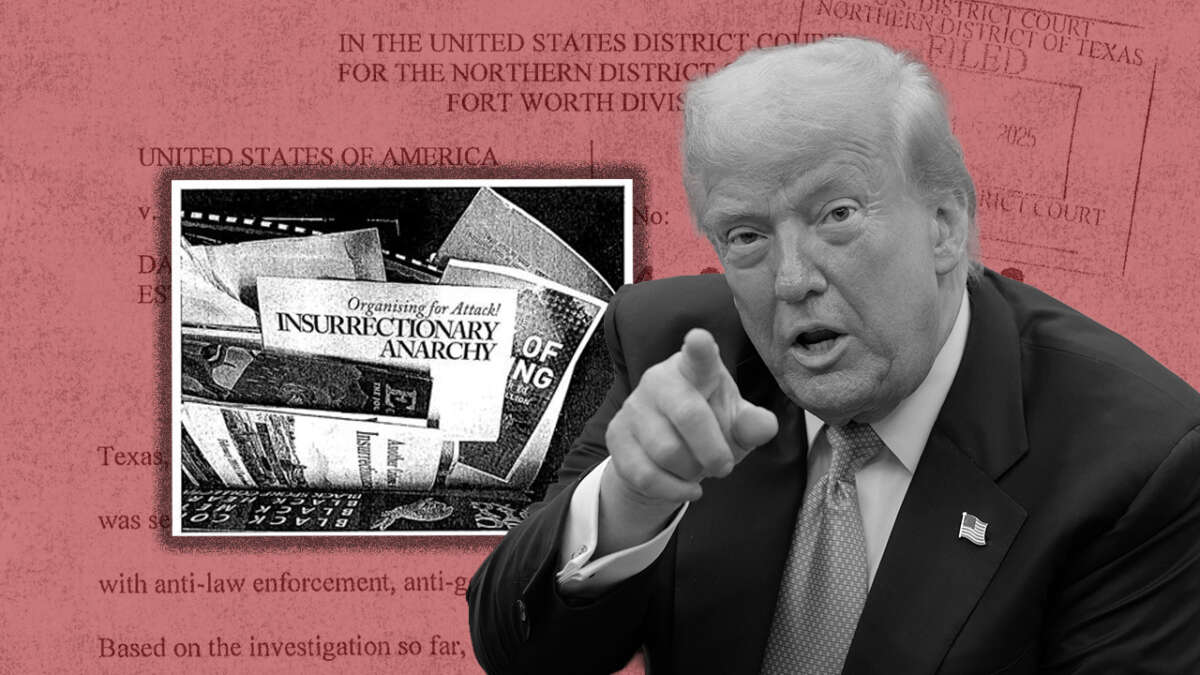







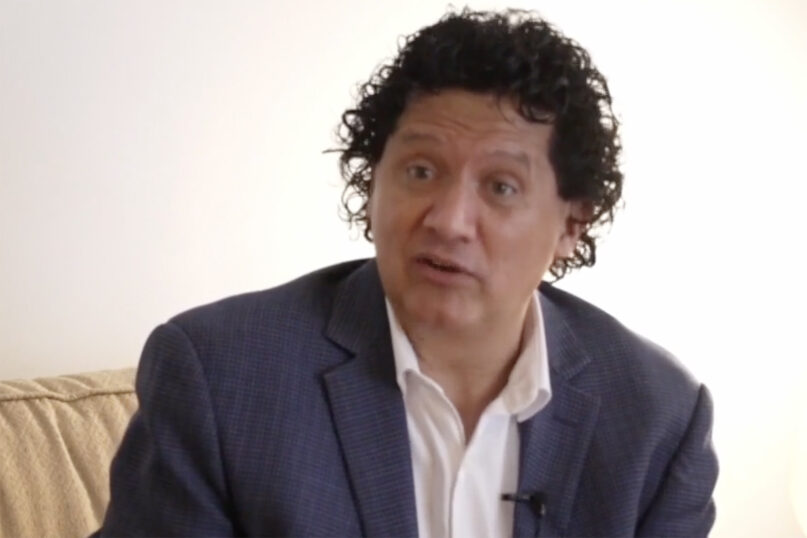




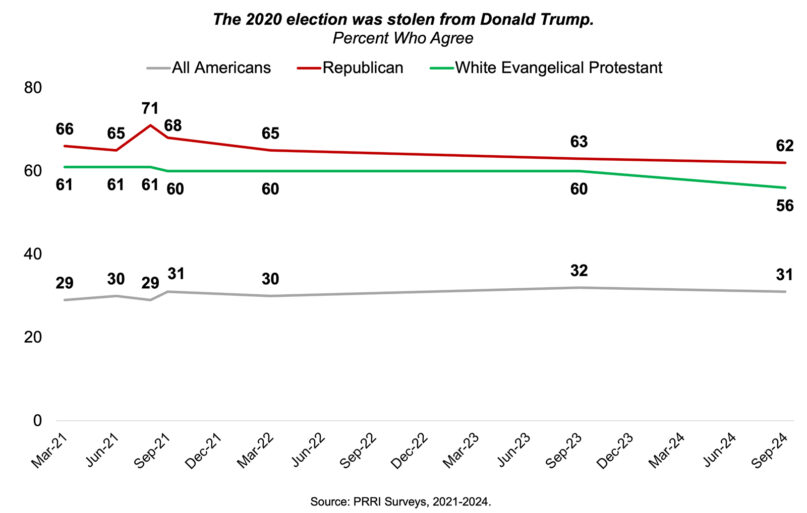


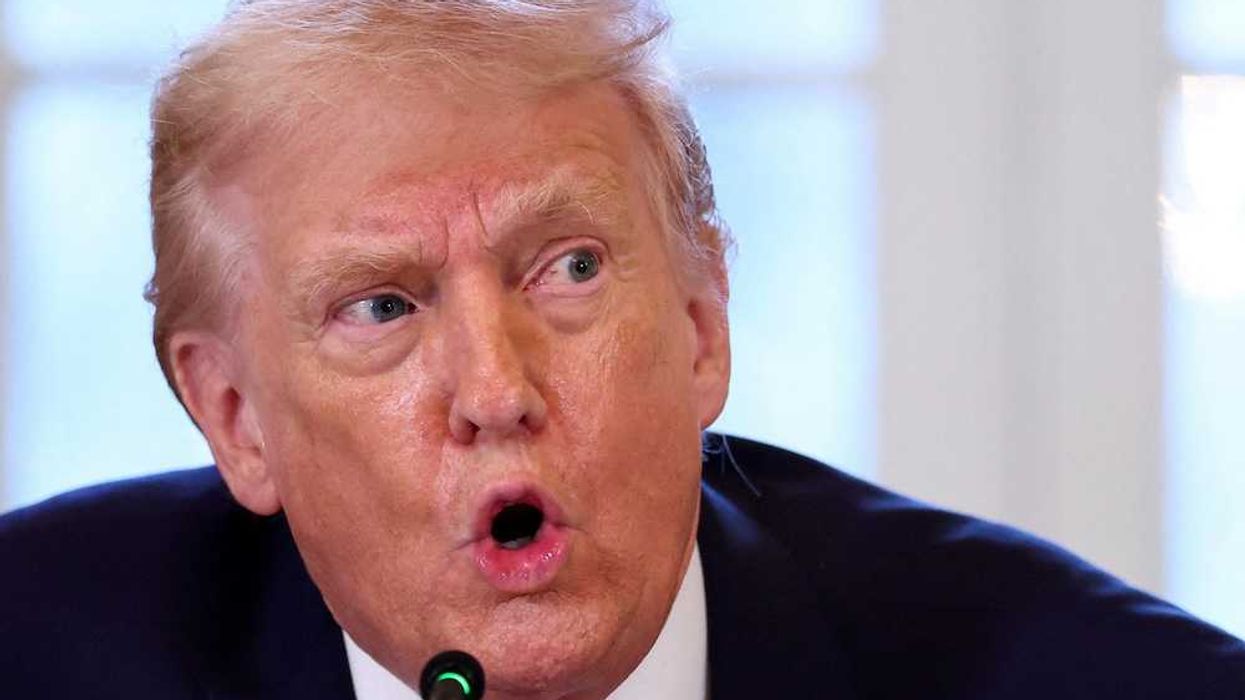
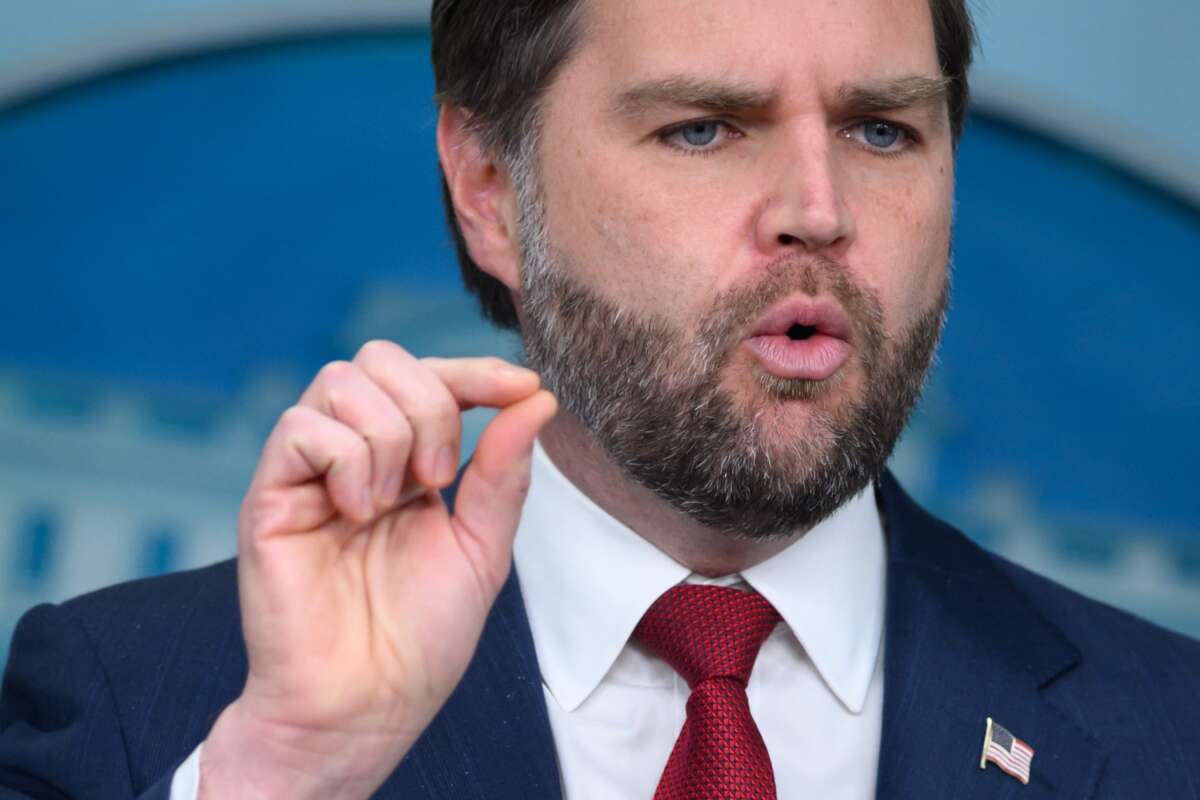

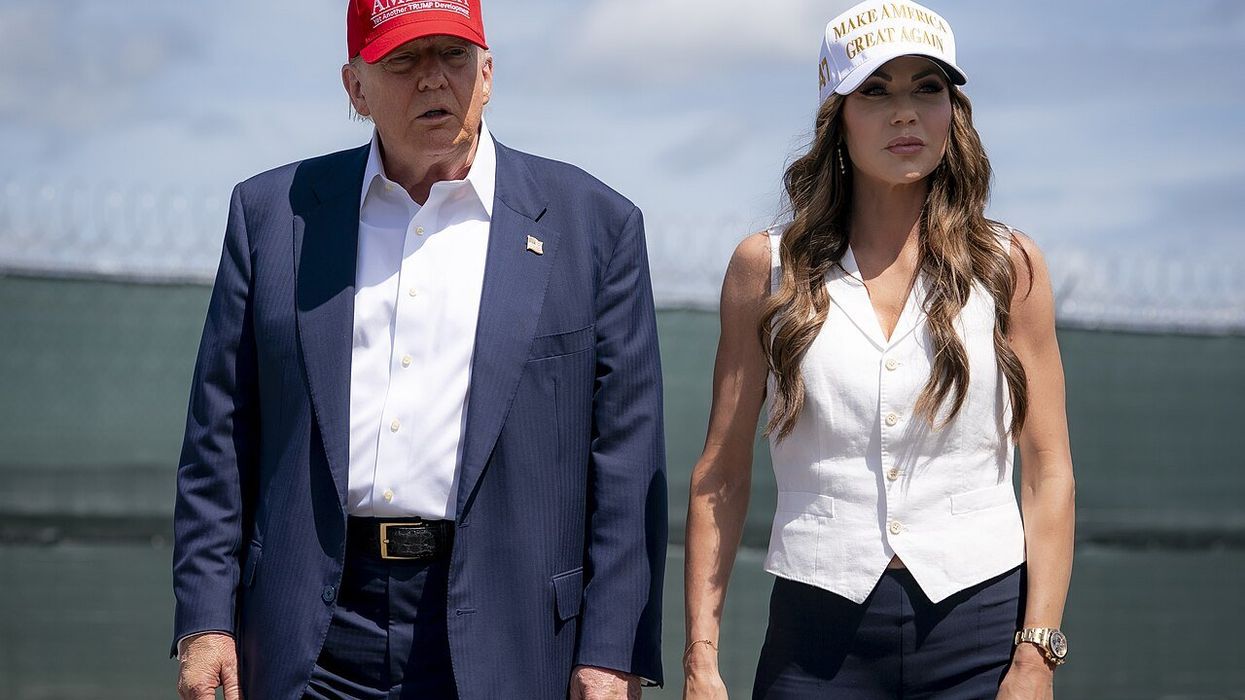
.jpg)
